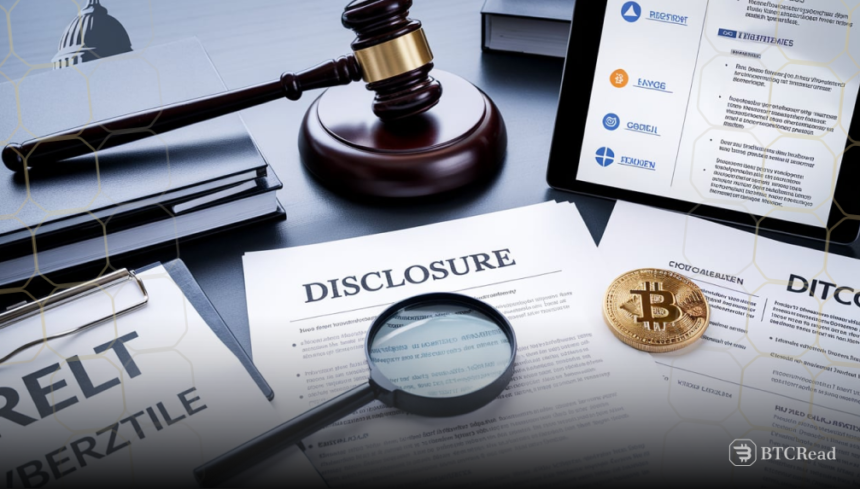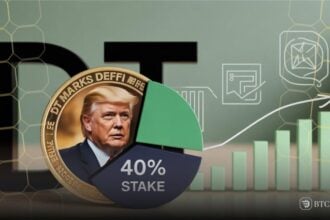The U.S. Securities and Exchange Commission released new disclosure guidance on crypto-related firms. The Division of Corporation Finance made an announcement to explain how existing securities laws apply to firms operating in the crypto asset sector.
The action came after the establishment of the Crypto Task Force under Acting Chairman Mark T. Uyeda. The aim is to clarify issuers’ responsibilities under the 1933 Securities Act and the 1934 Exchange Act.
Crypto businesses are not, by default, regarded as trading securities. If that is the case, though, there are some rules to abide by. They include complete disclosure regarding the nature of business operations, financial condition, and structure of any crypto asset offerings.
The Division underlined that disclosures should be individual to the business of each issuer. Vague and general language should not be used by companies.
They should explain their operations and current level of development clearly. They should also explain the use of their tokens or crypto assets in their operations.
Companies are also responsible for identifying risks associated with operations. They can include legal risks, technological risks, and financing risks. They are obligated to describe any regulation or cybersecurity risks.
If the network, application, or crypto asset is under development, firms are required to provide information like estimated costs, project milestones, and sources of funding.
The SEC is requiring issuers to describe how their networks or apps work. That includes the block size, the way consensuses are reached, transaction costs, and the governance.
SEC emphasizes crypto transparency and compliance
However, if there is open-source code being used or smart contracts, firms need to include pertinent information and any available audits.
Crypto firms should also reveal who operates the company. Key executives, directors, or third-party administrators should be identified and described in the experience.
Financial reports should conform to current accounting standards, and any agreements related to rights under the token should be submitted as an exhibit.
This does not alter the law and serves merely to elucidate how the SEC views disclosure obligations in the crypto arena. Issuers are encouraged to seek the SEC out when unsure.
The SEC action marks an increasing level of monitoring in crypto markets. Companies are going to have to balance innovation with compliance more tightly.
Although the SEC continues to work on a more comprehensive framework, the most recent action places an emphasis on transparency, thoroughness, and explicitness. Crypto players are finally having a better-defined path, but with greater responsibility, too.







